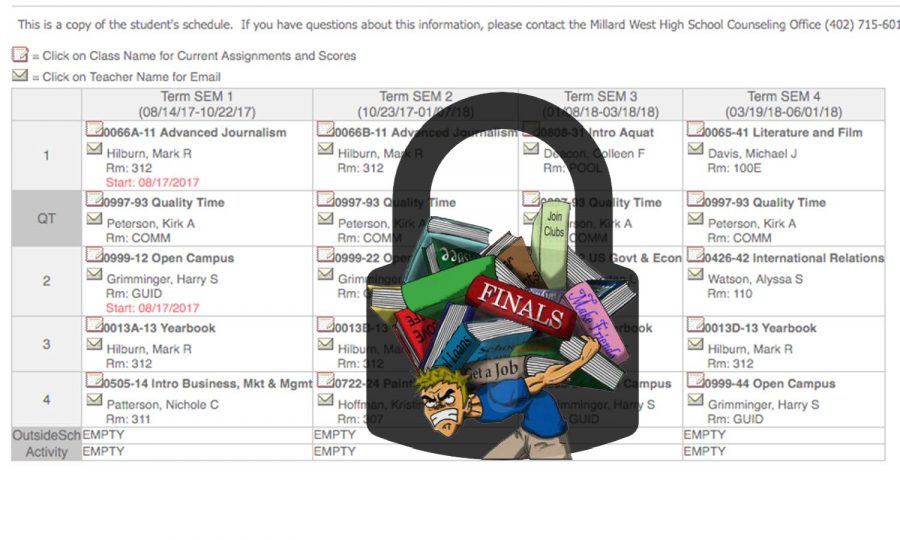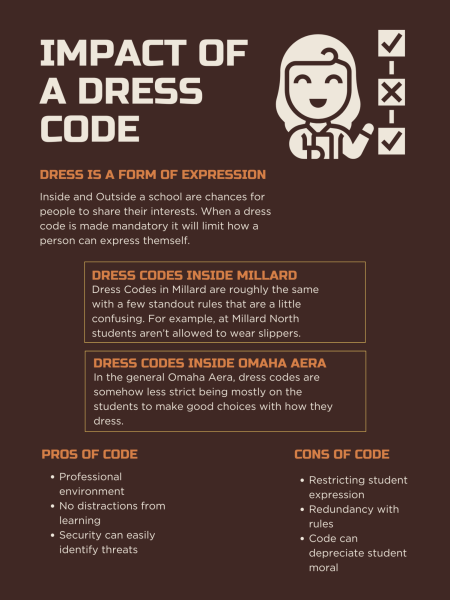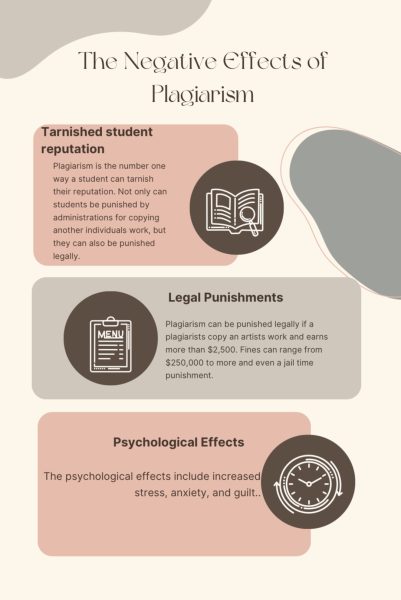Short-Sighted Schedule Rules Impede Student Success
October 9, 2017

Coming back to school can bring on many emotions but one it should not being bringing is stress over schedules.
Millard West has a class schedule policy that is overly strict and is hindering students from taking classes they enjoy. It also restricts them from making adjustments to fit their lifestyle and agenda. Students register for classes in mid-February before the school year and a great deal of class preferences can change in seven months.
Students received their schedules on August 10th this year. Four days before the first day of school for freshmen and five days for seniors. Some schedules lacked the original classes that were selected.
On the other hand, there are some valid claims made by the school administration like that students should not be able to move classes based on teacher preference or lunch time. But those examples should not justify denying students a chance to adjust their schedules due to new activities, jobs, or interests.
Additionally, some blocks could be overly stacked with difficult classes. In order to be successful and be able devote the study time necessary to achieve good grade, it shouldn’t be unreasonable to get a schedule with an equal balance of difficult and easy classes. Students who take AP classes know that those classes require extra time so they might want to move a core class to make sure they do not have four plus hours of homework. This can allow them to participate in activities while not being under a time crunch each night. The counselors and teachers should understand and respect a student who is truly just trying to excel and have a balanced schedule.
Another flaw with the stringent scheduling rules is some students may have a front or back loaded schedule. This is because a computer generates a vast amount of the schedules and it does not take into account the difficulty level of classes and how the classes would be best divided on the block schedule. No one should have the first half of their schedule filled with core classes and the second half littered with electives and easier classes.
Maybe over summer break a student discovered he/she liked astronomy or while they were looking at colleges, they discovered it would be beneficial to take a harder or different class for college. Students are allowed to change majors in college multiple times, but a Millard West student cannot opt out of a cooking class to take Contemporary Literature. Exceptions need to be made and students should be able to make schedule decisions they feel are best for them without going through heaps of red tape.
Some students, especially upperclassmen, may have jobs or other commitments. It should not be unreasonable to allow a student to adjust his/her schedule because he or she wants to have 4th block off instead of second to accommodate a job to help pay for college. If the classes are available multiple blocks and time periods, making those accommodations shouldn’t be such a problem.
In past years, there was a multitude of students lined up outside the guidance office. Yes, for a few days of the year, this can be daunting and challenging for staff, but just because something is tough or time consuming for counselors, that shouldn’t justify not allowing students the opportunity to make their high school experience the best it can be. They should want to make every student’s school year enjoyable and less stressed for the entire semester.
The students scheduling guidelines need to be re-evaluated and adjusted. These rules are antiquated and our administration should weigh the value of working with a student to create a successful school schedule vs the additional stress or inconvenience it places on the administrative staff to make necessary changes to schedules.
















